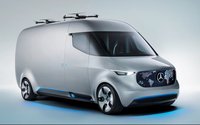 Rather than
being one, cohesive end-to-end phenomenon, the Internet of Things comprises differing silos of major innovation.
Rather than
being one, cohesive end-to-end phenomenon, the Internet of Things comprises differing silos of major innovation.
The end vision, of course, is that all the smart and connected objects will be
digitally glued together so that the value chain will be enhanced to provide consumers with new and recurring benefits as they make their way through their day.
Two of the connected objects
silos are autonomous driving cars and drones that can be operated automatically beyond an operator’s vision.
Various entities have been testing drone advertising, since a drone can carry
large signage, in effect becoming a moving billboard.
And connected and self-driving cars, whether desired by consumers or not, are being tested around the world in pilots ranging from taxis
to personal transportation uses.
Now a major automaker says it will work to merge the worlds of connected cars with drones.
Mercedes-Benz is allocating $562 million for digitalization,
automation and robotics in vans and other mobility products.
First up is the Vision Van, an all-electric and totally connected vehicle outfitted and integrated with delivery drones.
The
idea is that the van is automatically, robotically loaded with packages for delivery. When the van stops near several delivery points, the drones on the van’s rooftop take over.
Packages
are served up from the van to the drones, which take off to their designated locations where consumers can track exact delivery time by mobile phone.
The entire process from loading to
delivery is connected. Smart technology in the van includes telematics, which collect and process data concerning the status of the delivery tour and current location of the load, all of which is
transmitted to a distribution manager.
The vans would be equipped with interconnected, automated cargo space systems so the next package to be delivered would be moved to the top of the queue.
Mercedes estimates that each delivery van, which carries on average 180 packages, requires rearranging packages 10 times.
As part of the investment, Mercedes also is planning for on-demand
transportation of goods and people as a possible supplement for public transit via ridesharing concepts.
The new Mercedes unit, called Future Transportation System, already has 200 employees
working on all of this.
To push along the integrated van and drone combo, Mercedes bought a piece of Matternet, a U.S. developer of autonomous drone logistics.
Whether or how well the
IoT silos of connected cars and drones will work is yet to be seen.
If nothing else, it’s another half a billion dollars looking to create a more cohesive IoT future.